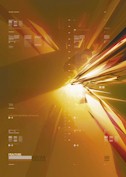
With new online techniques of exposition, material can be crafted from the absolute best of many thinkers’ words: a compelling paragraph from one source, an even more eloquent passage from another, and so forth.
It would be hard to overestimate the quality, or the sheer vitality, of the material that can be created in this manner.
Now add the ability to skim the material at a high level, or delve into as much supporting detail as we like, point by point. Throw in the option of checking out logical challenges to it on the spot, as well as seeing additional material that supports it. Then tack on the ability to see logical implications that the material’s original authors may never have foreseen, in areas they may never have considered.
We wouldn’t have to stop reading and break our train of thought as we try to find some other article, or locate another journal. It would all be right there in front of us.
All told, this would be a more powerful tool for the sharing of knowledge than anything yet devised.
Because virtually anybody would be able to link material, its content would gain the vigor of diversity. Yet quality would remain as high as today or higher, because people could simply set their filters to reflect the same kinds of rigorous peer review that existing journals provide—and whatever did not meet these standards would be effectively invisible to them.


